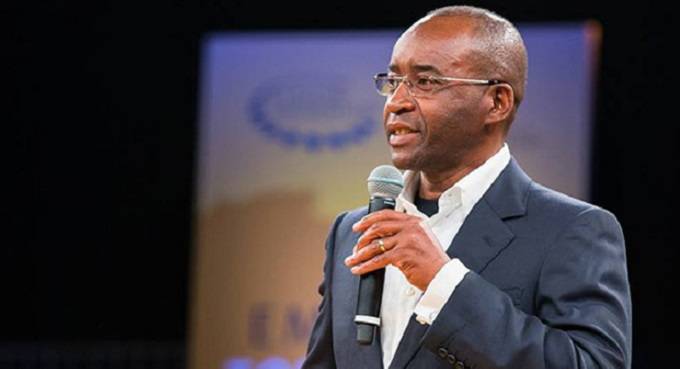JUST IN: Liquid Telecom completes historic fibre link project

Harare Bureau
LIQUID Telecom, Africa’s leader in digital infrastructure, has completed one of the most audacious projects ever built on the continent, according to its founder and chairman of the Econet Group, Strive Masiyiwa.
The latest project, which connects East and West Africa with a new high-capacity fibre link running 2,600-kilometre (km) across the Democratic Republic of Congo (DRC), has been ongoing for the past decade.
“Next week on Tuesday President Félix Tshisekedi of the DRC will officially commission our fibre link, which runs from the port city of Moanda on the Atlantic, through Kinshasa the Capital, to Lubumbashi, Zambia, Zimbabwe and all the way to Cape Town,” Mr Masiyiwa said.
“Once in Zambia, the cable joins the Liquid cable that runs to East Africa and on to Egypt.
It will also create the first crossing of Africa from West to East, by fibre cables. I consider this project one of the most important in my entire 35-year career as an African entrepreneur.”
The multi-million-dollar fibre project will lay and create a foundation for social mobility, economic diversification and private sector-led growth both in the DRC and more widely across Africa.
It also underscores Liquid Telecom’s commitment to bring high-speed connectivity to every African on the continent. The pan-African telecommunications firm, which has installed more than 70,000 kilometers of fibre across Africa and operates five data centers in South Africa, Kenya and Rwanda, in February raised US$840 million in a bond and loans to refinance debt and expand further into the continent.
Until recently, no direct, land-based fibre network existed between East and West Africa. Network traffic between Kinshasa in the DRC and Dar es Salaam in Tanzania, for example, was routed via London. Liquid Telecom’s East to West fibre link promises significantly reduced latency between major continents via Africa.
It also meets the growing demand from global enterprises for fast, reliable, high-capacity and cost-effective communication across the southern hemisphere.
Mr Masiyiwa said this was a really difficult project to undertake for the company and its partners as it faced many hurdles.
“It took more than 10 years from when we first arrived in Lubumbashi in the South, to finally get to Kinshasa.
There were so many challenges. Getting from Lubumbashi to Kinshasa is a journey of more than 2 300km, through the world’s second largest rain forest.
The way it was done was to piggyback the fibre cable on top of the power grid that runs through this forest.
“Once the cable was in place, we had a problem of providing power to the 16 repeater stations that drive the signal through the fibre.
Our team at Distributed Power Africa (DPA) built this unique power system and installed it in less than 12 months,” he said.
The telecoms mogul added that the ambitious project was almost derailed due to lack of funding and international support.
“Financing something like this is just not easy.
I remember going to see the World Bank to plead on behalf of the DRC government, to fund the project. In the end they funded part of it, whilst a private sector consortium of telecom operators and SNEL (the power company of the DRC) did the rest.
There were other partners who got involved from all over the world who prefer to remain in the back ground,” he said.
Despite overcoming geographical and financial challenges, the project came to a crushing halt due to political interference during the reign of Joseph Kabila.
“This project would have been hard enough without the politics.
At one time it just stopped because of political wrangling. Then one day a new and dynamic leader was elected.
He called me and asked me to go to Kinshasa where I had not been in almost 30 years.
He knew all about the work and why it had always stalled,” Mr Masiyiwa said.
“He asked me what we needed to complete the work. We shook hands and I got our people back to work. People my age talk a lot about legacy initiatives.
I would like our work in getting this done to be one of my legacy initiatives. I am super proud of the more than 10 000 people who worked on this,” he added.
Mr Masiyiwa said Liquid Telecom is still working on other great projects in the DRC, and the company employs more than 5 000 people who are digging for more than 2 000 km from Kinshasa to Kigali.
“We have a special project to cross the Congo River to link Kinshasa and Brazzaville. This will be completed by end of March this year. We are linking Kinshasa to Luanda. This will be finished end of April,” he said.











Comments